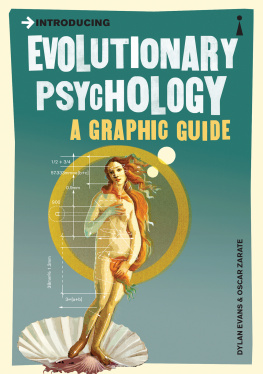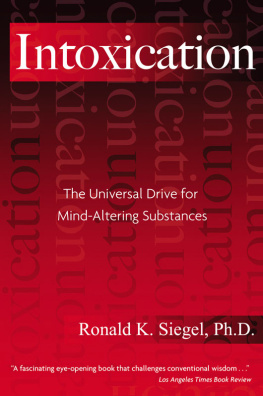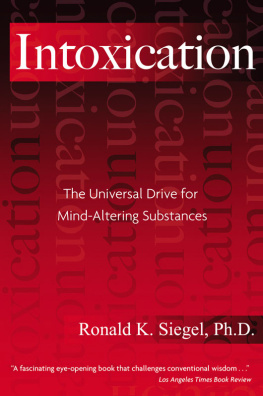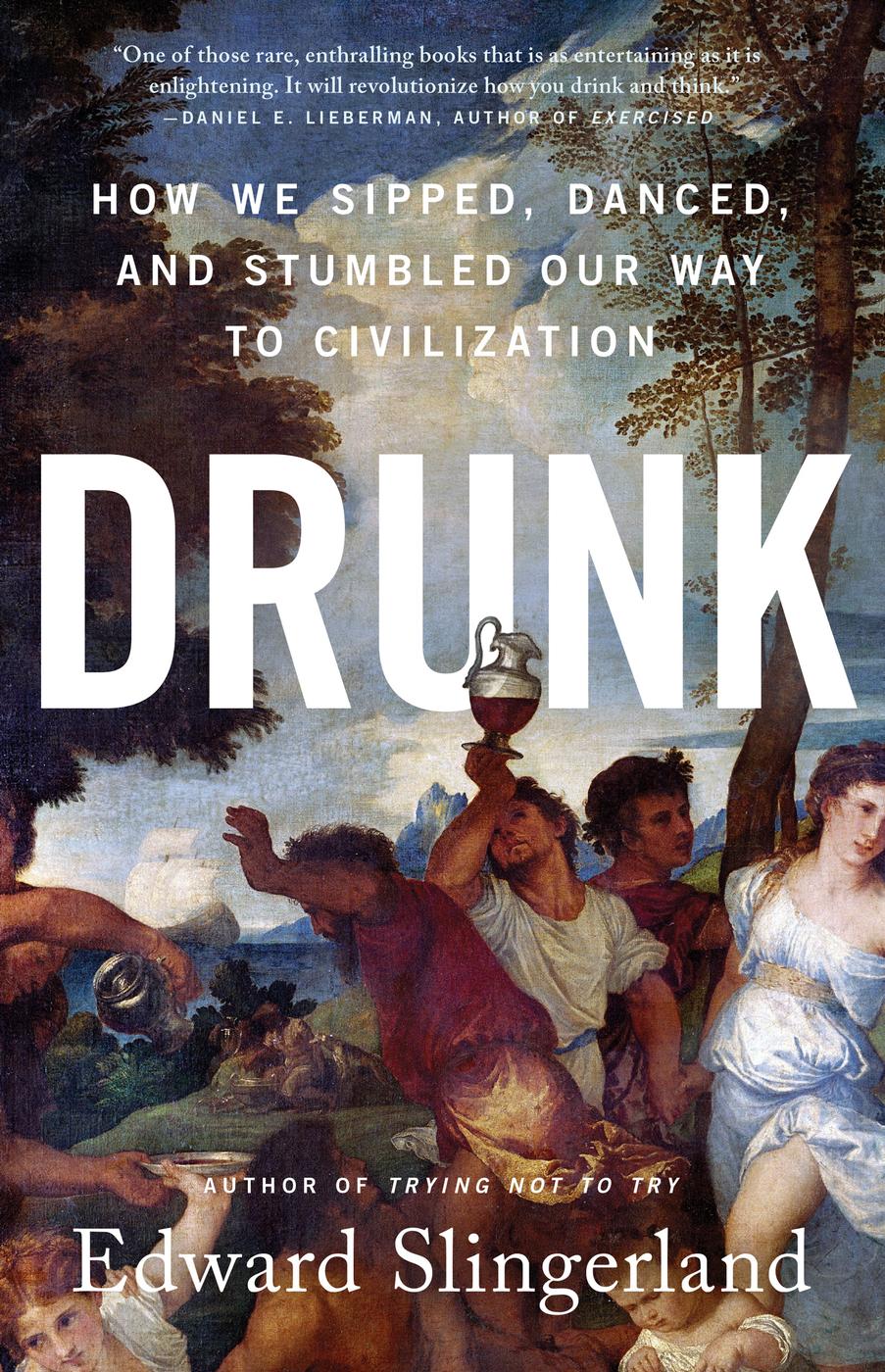
Copyright 2021 by Edward Slingerland
Cover design by Lauren Harms
Cover art: Titian, The Bacchanal of the Andrians, 152326, oil on canvas, Museo del Prado, Madrid
Cover copyright 2021 by Hachette Book Group, Inc.
Hachette Book Group supports the right to free expression and the value of copyright. The purpose of copyright is to encourage writers and artists to produce the creative works that enrich our culture.
The scanning, uploading, and distribution of this book without permission is a theft of the authors intellectual property. If you would like permission to use material from the book (other than for review purposes), please contact permissions@hbgusa.com. Thank you for your support of the authors rights.
Little, Brown Spark
Hachette Book Group
1290 Avenue of the Americas, New York, NY 10104
littlebrownspark.com
facebook.com/LittleBrownSpark
twitter.com/LBSparkBooks
First ebook edition: June 2021
Little, Brown Spark is an imprint of Little, Brown and Company, a division of Hachette Book Group, Inc. The Little, Brown Spark name and logo are trademarks of Hachette Book Group, Inc.
The publisher is not responsible for websites (or their content) that are not owned by the publisher.
The Hachette Speakers Bureau provides a wide range of authors for speaking events. To find out more, go to hachettespeakersbureau.com or call
(866) 376-6591.
ISBN 978-0-316-45337-0
LCCN 2020951436
E3-20210506-NF-DA-ORI
T&T
BD, MD
AMFT
Explore book giveaways, sneak peeks, deals, and more.
Tap here to learn more.

This thirst for a kind of liquid which nature has sheathed in veils, this extraordinary need which acts on every race of mankind, in every climate and in every kind of human creature, is well worth the attention of the philosophical mind.
Jean Anthelme Brillat-Savarin
People like to masturbate. They also like to get drunk and eat Twinkies. Not typically all at the same time, but thats a matter of personal preference.
From a scientific perspective, we have long been told that these otherwise variegated pleasures have one thing in common: They are evolutionary mistakes, sneaky ways humans have figured out how to get something for nothing. Evolution gives us little shots of pleasure for doing things that advance its plan, like nourishing our bodies or passing on our genes. Clever primates, though, have been gaming this system for eonsinventing porn, birth control, and junk food, and seeking out or creating substances that will flood their brains with dopamine with callous disregard for evolutions original design goals. We are inveterate pleasure seekers, promiscuously grabbing little jolts of ecstasy whenever and wherever we can. When someone gets an endorphin hit from devouring a Twinkie, downing a shot of Jgermeister, and then pleasuring themselves to Swingers Getaway IV, they are getting an undeserved reward. Evolution must be furious.
One type of evolutionary mistake can be thought of as an evolutionary hangover, where we are plagued by behaviors and drives that were once adaptive, but are no longer. Our desire for Twinkies is a classic example of an evolutionary hangover. Junk food is appealing because evolution built us to like sugar and fat. This was a sensible strategy for our ancestors, hunter-gatherers haunted by the constant specter of hunger and starvation. It goes seriously off the rails, however, in modern environments, where most people have easy access to cheap sweets, carbs, and processed meats, sometimes helpfully delivered in a single, heart attackinducing package. Evolution can also be subverted by hijacks. These are cases where weve figured out an illicit way to tap into a pleasure system originally designed to reward other, more adaptive behavior. Masturbation is an exemplary hijack. Orgasms are meant to reward us for having reproductive sex, thereby helping our genes get into the next generation. We can, however, trick our bodies into giving us that same reward in any number of entirely, wildly non-reproductive ways.
In scientific circles, there is debate about whether our mistaken taste for alcohol is of the hijack or hangover variety. Proponents of hijack theories claim that alcoholic beverages make us feel good because their active ingredient, ethanol, happens to trigger the release of reward chemicals in our brain. This is a design glitch: These chemicals are actually intended by evolution to reward genuinely adaptive behavior, like eating nutritious things or pushing a hated enemy into a tar pit. But the brain can be tricked, and ethanol is one of the easiest ways to do so.
Proponents of the hangover theory see various ways in which a desire for getting at least mildly drunk might have been adaptive for our evolutionary ancestors, but argue that this drive has become extremely maladaptive in any kind of modern environment.
Whether of the hangover or hijack variety, evolutionary mistakes persist because natural selection hasnt bothered to deal with them yet. This is typically because whatever costs they involve are either relatively minor or have only become problematic quite recently. Evolution can afford to turn a blind eye to masturbation as long as our drive for orgasms still results in enough genes getting passed on to the next generation. Junk food is a modern problem mostly confined to the developed world. Alcohol is also something evolution could afford to ignore, at least until relatively recently. This is because alcohol, like sugar, occurs only in small quantities in the natural world. It takes some serious work to get a buzz off naturally fermenting fruit. It is only with the advent of agriculture and organized, large-scale fermentationmaybe 9,000 years ago, a blink of an eye in evolutionary termsthat serious booze became available to lots of people, pushing susceptible humans onto the slippery slide to widespread drunkenness, lost weekends, and ruined livers.
A crucial but often unacknowledged feature of any sort of evolutionary mistake view of alcohol or other chemical intoxicant use is that it sees getting drunk or high, like masturbation or stuffing your face with junk food, as an unmitigated vice. A vice is a habitual practice that gives fleeting pleasure, but that is ultimately harmful to oneself and others, or at best a waste of time. Indeed, even the most ardent fan of masturbation would have to admit that, all else being equal, there are probably more productive ways to spend a weekend afternoon. Indulging in these practices may feel good, but it is not doing usor anyone elseany good.
Not all vices are created equal, however. When it comes to our Swingers Getaway IV scenario, its actually the Jger shots that should keep evolution up at night. A bit of work time lost to masturbation is no big deal. Alcohol, on the other hand, can be truly dangerous. Alcoholic intoxication is an abnormal mental state, characterized by reduced self-control and degrees of either euphoria or depression, brought about by the temporary impairment of a big chunk of the brain. As the term suggests, it involves the ingestion of a toxin, a substance so harmful to the human body that we possess elaborate, multi-layered physiological machinery dedicated to breaking it down and getting it out of our systems as quickly as possible. Our bodies, at least, clearly see alcohol as a serious threat.
An alcoholic beverage typically provides calories but little nutritional value, and is made from otherwise valuable, and historically scarce, grains or fruit. Its consumption impairs cognition and motor skills, damages the liver, kills off brain cells, and fuels ill-advised dancing, flirting, fighting, and even more louche behaviors. In small doses, it can make us happy and more sociable. But increased consumption quickly leads to slurred speech, violent arguments, maudlin expressions of love, inappropriate touching, or even karaoke. While getting completely wasted can induce ecstatic experiences of selflessness and group bonding, it also often leads to vomiting, injuries, blackouts, ill-advised tattoos, and serious property damage. And lets not even get started on hangovers.




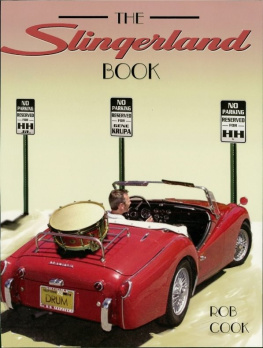
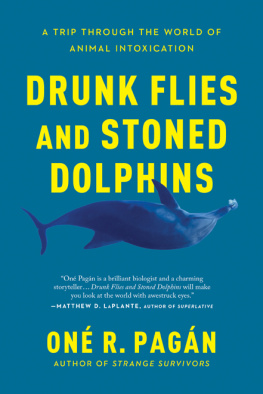
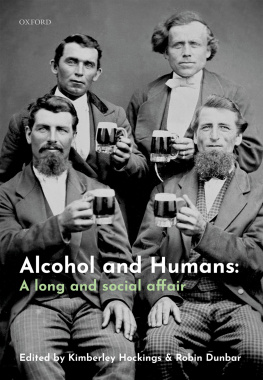
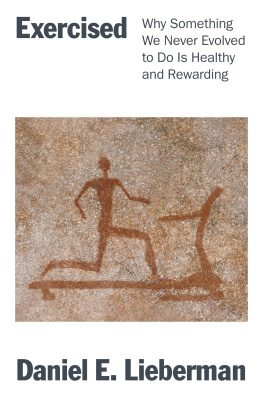
![Scott C (Christopher) Martin - The Sage Encyclopedia of Alcohol Social, Cultural, and Historical Perspectives. 1 [A - D]](/uploads/posts/book/102244/thumbs/scott-c-christopher-martin-the-sage.jpg)
